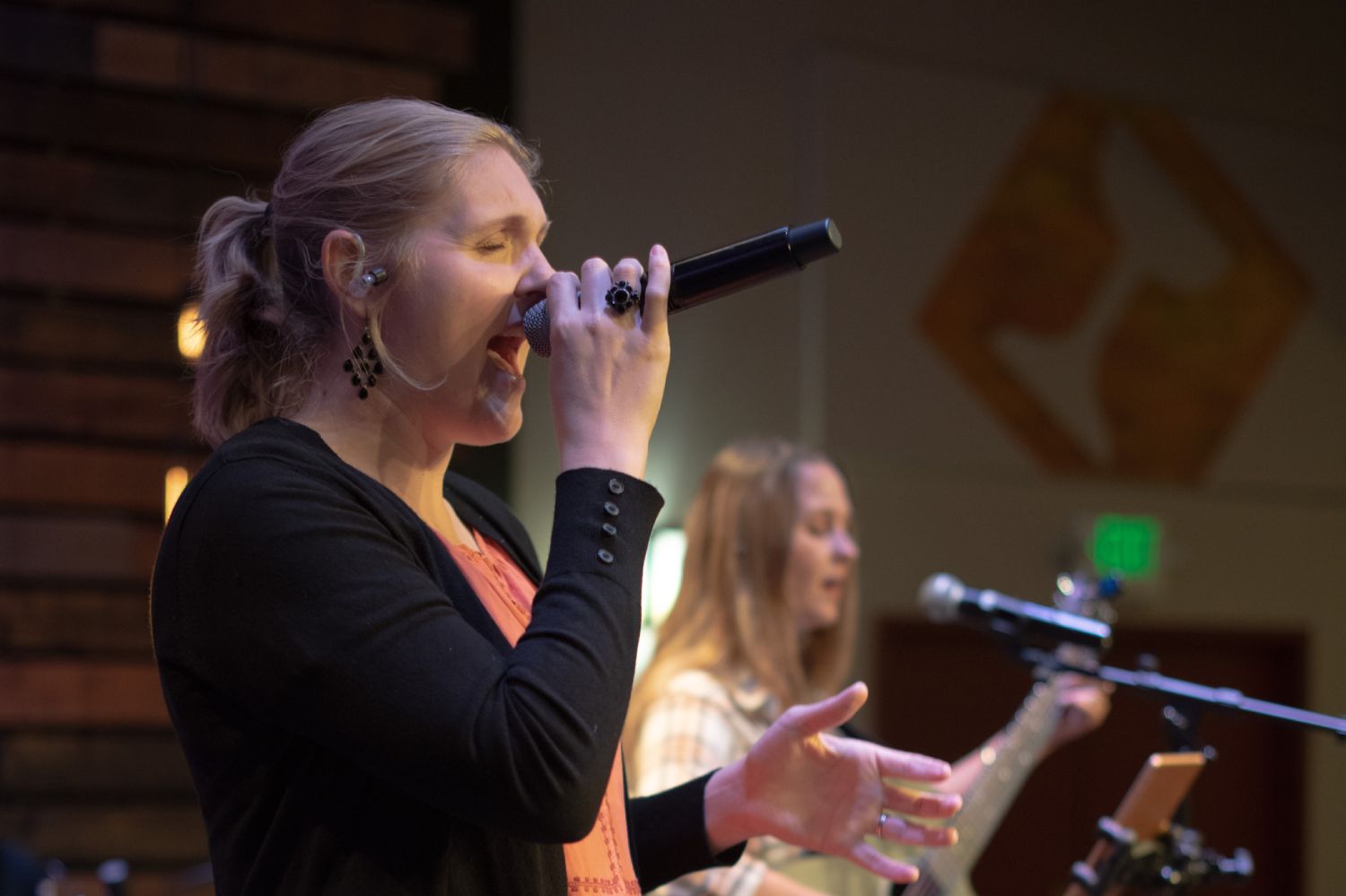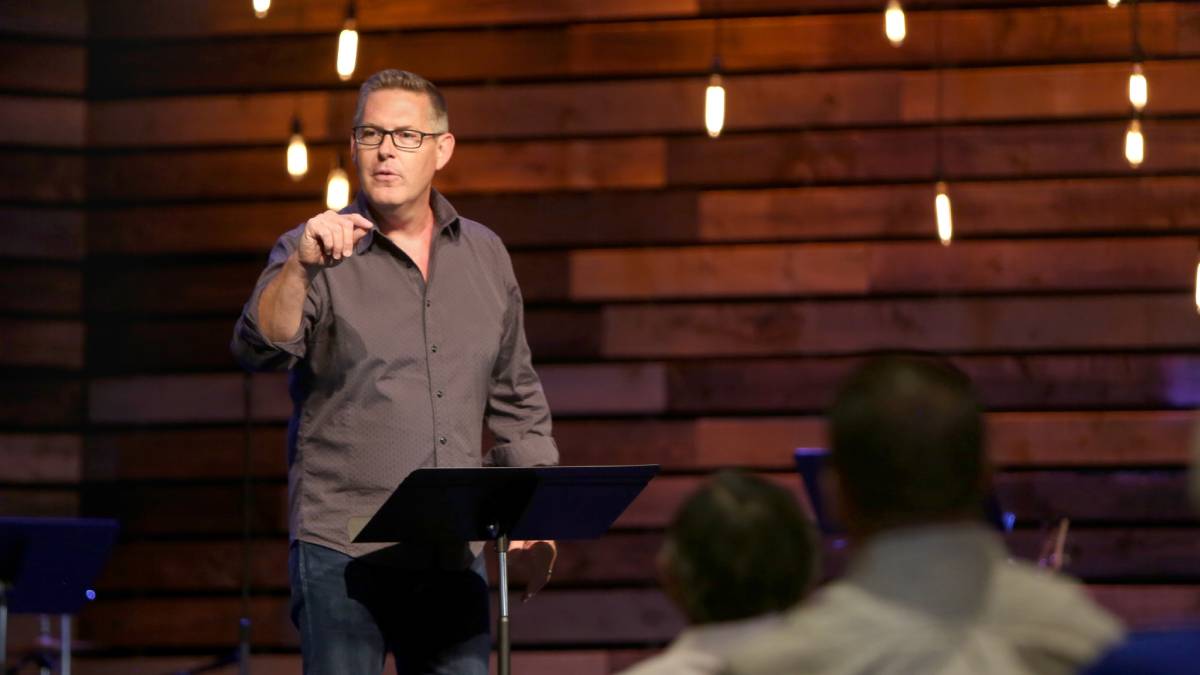When I was a kid, nothing got my mom going like the arguments I’d have with my younger brother and sister. That woman of God would fly into action and enact swift justice. She’d pronounce guilt (usually upon me), then immediately make the offending party say: “You were right. I was wrong.”
Then, whether we wanted to or not, the one who’d been offended had to respond:
“I forgive you.”
That was it. Clean and simple. I might have still been seething inside, wanting to throttle my sibling, but it was done. Time to move on. This must simply be how forgiveness works.
While life did move on, my views of forgiveness didn’t. I continued to deal with small failures through this same framework: one person admits fault and the other says all is forgiven. You just move on.
That seemed to work until I was almost 40 years old.
Over the course of a year we could tell my dad was slowly imploding. He’d seen his global marriage ministry taking significant hits and his life seemed to be crashing in around him. So, battling depression and feelings of deep rejection, after more than 30 years of ministry and 40 years of marriage, my dad took off.
It was a very public and hurtful divorce. It quickly became an illustration in multiple news sources of “another minister who couldn’t keep his own marriage together.”
I was livid. I was watching my mom go through incredible pain and embarrassment, and my three young children go through deep sadness and questioning. Plus, I had my own hurt and anger to deal with. Lots of anger.
After two emotionally charged phone calls with my dad (the last one ending with us screaming at each other), we stopped talking altogether. We resorted to lengthy emails in which I was furiously attempting to prove how wrong he was, and he just as forcefully was defending his decision. We were at a bitter deadlock—one that, after several weeks, was literally making me sick.
I discovered that the deeper my hurt, the tighter I wanted to squeeze the life out of the one who had caused my pain. I felt it was my right (maybe even my duty) to keep a chokehold on my dad until it either killed him or forced him to admit he was wrong.
Then along came a friend, a counselor, who began to gently probe around the edges of my wounds.
As he graciously helped me process my anger, he finally asked me what forgiveness might look like in my situation. No way! I wouldn’t even consider forgiving my father. I couldn’t. After all, he hadn’t said the magic words: “I was wrong. You were right.” Without the admission of his guilt, what was there to forgive?
But my friend, along with the pain in my soul, urged me forward. In the season that followed I began deconstructing my old, immature views of forgiveness, while building a new, transformative, faith-formed understanding of this life-giving process.
Two things helped more than any other.
First, I turned to Jesus’ words in the Bible and discovered I’d been ignorant as to what forgiveness truly meant. I went to the root meaning of the words He used to talk about forgiveness and found they literally meant:
LET GO!
Jesus was the one who famously stated, “Forgive, and you will be forgiven” (Luke 6:37). But what rocked me was discovering this very same word for “forgive” was used by Pilate, just before sentencing Jesus to death on the cross. Pilate said, “Don’t you realize I have power either to free you or to crucify you” (John 19:10)?
There it was! I was just like Pilate. It didn’t matter whether or not my dad ever admitted he was wrong—I still had the power to either free him or destroy him. The decision was mine: would I let him go?
Right then I sensed God tenderly urging me to forgive my father—not pretending he hadn’t caused real pain—but asking me to loosen my grip so I could release him (and my hurts) to the Lord.
I found it came down to an issue of trust. Did I believe Jesus would handle this situation, or was I depending more in my own ability? Did I trust God to judge my dad and bring any needed correction, or did I think I could judge and punish him better myself?
I chose to trust the Lord with my dad and start the slow process of letting go.
Forgiveness had begun.
The second thing that helped me understand forgiveness was an illustration made by 20th Century saint, Corrie ten Boom.
During the Second World War, the Nazis had thrown Corrie into a concentration camp and caused the deaths of every member of her family. It was unimaginably traumatic. But in her pain, God broke through. She discovered that the grace of Jesus is greater than any evil.
Corrie’s message of forgiveness went worldwide, and she became a source of freedom and hope for millions of hurting people in the decades after the war. Here’s the illustration she used about forgiveness:
“If you have ever seen a country church with a bell in the steeple, you will remember that to get the bell ringing you have to tug awhile. Once it has begun to ring, you merely maintain the momentum. As long as you keep pulling, the bell keeps ringing. Forgiveness is letting go of the rope. It is just that simple. But when you do so, the bell keeps ringing. Momentum is still at work. However, if you keep your hands off the rope, the bell will begin to slow and eventually stop.”
Corrie’s words emphasized exactly what I’d seen in Scripture: forgiveness means letting go! But she also caused me to realize that letting go wasn’t just a one-time act that would immediately free me from all my pain. Forgiveness would be a daily choice. If I wanted to the pain to subside, I’d have to continue choosing to let go of the rope (or in my case, my dad’s throat!).
And she was right.
My journey of forgiveness started with an email. Three of the most difficult words I ever wrote was when I sent my dad a note saying: “I forgive you.” I immediately felt the crushing weight of anger lift from me. But that was just the start of my journey.
Over the days, weeks, and seasons that followed there were many times when I was tempted to grab the rope again. Every time I’d feel that anger toward my dad rise back up, I had to make the choice: will I set him free or crucify him?
I didn’t always choose wisely. Sometimes my anger would get the best of me, and I’d feel my heart begin to rage. But then I’d remember: Let Go! Let go of the rope.
And then came the day when I realized the bell had finally stopped ringing. The anger was silenced. I was free.
I’m not sure how my freedom impacted my dad’s journey, but eventually he got free as well. Not only did he dig out of the hole he’d been in, but he worked to restore the relationships he’d so badly bruised.
To God’s glory, not only was I fully reconciled with my dad, but he went on to rebuild a friendship with my mom and even took on new ministry projects that connected him with people from around the world. You never know what’s waiting for you on the other side of forgiveness.
So why do we hold on to our pain so long? What makes it so hard to forgive?
When we’ve been hurt, we create a number of arguments to justify why we won’t let go.
- We think forgiveness would signal that what they did was OK—and it wasn’t
- Others would think we’re being tolerant of the pain they caused
- It would give them permission to keep hurting us or others
- They’d never be held accountable for their actions
- We’d have to pretend like none of this ever happened
But each of these arguments are built on a faulty premise.
The truth is, forgiveness is never about excusing a wrongdoer’s actions—ever. Real forgiveness has to do with letting go of our hatred toward the offending party and letting go of our right to be that person’s judge, jury and jailer. It has to do with trusting God with the offense and the offender, believing, “I can let go, because I believe God will bring whatever justice is needed.”
When we discover the true nature of forgiveness, we begin to understand:
- Forgiveness never erases accountability for one’s actions. Just because I let go of my right to be someone’s judge, it doesn’t mean the offender shouldn’t face a real judge.
- Forgiveness and boundaries are not mutually exclusive. When I forgive someone, I may also need to create healthy boundaries (for a season or forever) so that person doesn’t continue to inflict pain.
- Forgiveness doesn’t minimize the reality of my wounds. Instead, it maximizes my faith in God’s ability to deal with both my pain and the one who inflicted it.
Unforgiveness is a soul-eating disease. But forgiveness is the cure—no wound too deep to heal.
Questions to ask:
- Is there anyone I’ve refused to forgive?
- What arguments have I used to justify my unforgiveness?
- Can I trust God to deal with the one who hurt me?
- What pain do I need to let go of today?


